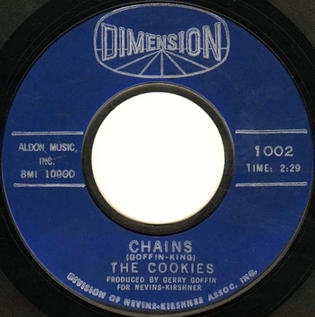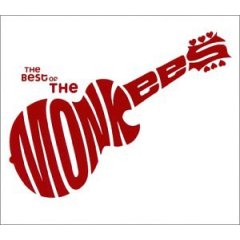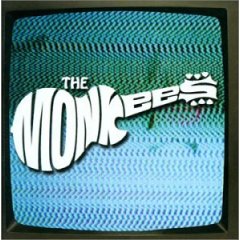Related Research Articles

Robert Michael Nesmith was an American musician, songwriter, and actor. He was best known as a member of the Monkees and co-star of their TV series of the same name (1966–1968). His songwriting credits with the Monkees include "Mary, Mary", "The Girl I Knew Somewhere", "Tapioca Tundra", "Circle Sky" and "Listen to the Band". Additionally, his song "Different Drum" became a hit for Linda Ronstadt and the Stone Poneys.

Christine Anne McVie was an English musician and singer-songwriter. She was the keyboardist and one of the vocalists and songwriters of Fleetwood Mac.

Timothy Charles Buckley III was an American musician. He began his career based in folk rock, but subsequently experimented with genres such as psychedelia, jazz, the avant-garde, and funk paired with his unique five-octave vocal range. His commercial peak came with the 1969 album Happy Sad, reaching No. 81 on the charts, while his experimental 1970 album Starsailor went on to become a cult classic. The latter contained his best known song, "Song to the Siren." Buckley died at the age of 28 from a heroin and morphine overdose, leaving behind one biological son, Jeff, and one adopted son, Taylor.

L.A. Woman is the sixth studio album by the American rock band the Doors, released on April 19, 1971, by Elektra Records. It is the last to feature lead singer Jim Morrison during his lifetime, due to his death exactly two months and two weeks following the album's release, though he would posthumously appear on the 1978 album An American Prayer. Even more so than its predecessors, the album is heavily influenced by blues. It was recorded without producer Paul A. Rothchild after he quit the band over the perceived lack of quality in their studio performances. Subsequently, the band co-produced the album with longtime sound engineer Bruce Botnick.

Jack Walter Keller was an American composer, songwriter and record producer. He co-wrote, with Howard Greenfield and others, several pop hits in the late 1950s and early 1960s, including "Just Between You and Me", "Everybody's Somebody's Fool", "My Heart Has a Mind of Its Own", "Venus in Blue Jeans" and "Run to Him". He also wrote the theme songs for TV series including Bewitched and Gidget, and later worked in Los Angeles – where he wrote for, and produced, The Monkees – and in Nashville.

"Chains" is a rhythm and blues song written by husband-and-wife songwriting team Gerry Goffin and Carole King. It was a hit for the American girl group the Cookies in 1962 and for the English rock band the Beatles, who recorded the song for their debut album in 1963. King recorded a solo version of "Chains" for her 1980 album Pearls: Songs of Goffin and King.

The Monkees is the debut studio album by the American band the Monkees. It was released on October 10, 1966 by Colgems Records in the United States and RCA Victor in the rest of the world. It was the first of four consecutive U.S. number one albums for the group, taking the top spot on the Billboard 200 for 13 weeks, after which it was displaced by the band's second album. It also topped the UK charts in 1967. The Monkees has been certified quintuple platinum by the RIAA, with sales of over five million copies.

The Best of the Monkees is a Monkees compilation released by Rhino Entertainment. It contains 25 songs from the Monkees' repertoire, listed in chronological order by release date. Also included is a bonus karaoke CD with five tracks. Unlike previous Rhino compilations, this one does not include any material from the 1980s or 1990s reunions, focusing strictly on the band's 1960s output.

"Heart of Stone" is a song by the English rock band the Rolling Stones, credited to the songwriting partnership of Jagger/Richards. London Records first issued it as a single in the United States in December 1964. The song was subsequently included on The Rolling Stones, Now! and Out of Our Heads.

The Monkees' 1995 Greatest Hits album was the third so titled to date. It was issued when Rhino Records took over the Monkees' catalog, and was intended to replace the existing Arista compilations. It has since been superseded by The Monkees Anthology and The Best of the Monkees.

The Monkees Anthology is a two-CD compilation set by the Monkees issued in 1998, and is the first collection to include material from their most recent studio album at the time, Justus. It includes almost all the original singles and B-sides, as well as a TV rarity and one live track.

What's Shakin' is a compilation album released by Elektra Records in May 1966. It features the earliest studio recordings by the Lovin' Spoonful and the Paul Butterfield Blues Band, as well as the only released recordings by the ad hoc studio group Eric Clapton and the Powerhouse, until they were reissued years later.

"Tuesday Afternoon" is a 1968 song written by Justin Hayward that was first released by English rock band the Moody Blues on their 1967 album Days of Future Passed and later released as a single.
"Your Auntie Grizelda" is a song recorded by the American pop rock group the Monkees. Diane Hildebrand wrote the lyrics and Jack Keller composed the music. It is the first released song of the band with Peter Tork on lead vocals.

Jack Elliot Sings is an album by American folk musician Ramblin' Jack Elliott, released in Great Britain in 1957. Elliott's name is misspelled on the cover.

"End of the Night" is a song by the American psychedelic rock band the Doors. It was featured on the band's debut album and then released as the B-side to the album's first single, "Break On Through " in January 1967.
Cynthia Gooding was an American folk singer who recorded traditional songs from various countries for Elektra Records in the 1950s and 1960s. Judy Collins wrote that she had been "inspired" by her.

The Definitive Monkees is a limited edition Monkees compilation album released in 2001. It contains 29 of the Monkees' greatest hits. The album includes two tracks from the 1980s reunions. The album featured a bonus disc which featured 31 of The Monkees' rarity songs.

Monkeemania (The Very Best of the Monkees) is a two-disc Monkees compilation released in 2011. It contains 57 of the Monkees' songs, including hit singles, B-sides, album tracks and rarities. Several of these songs were unreleased in the 1960s, but were eventually issued on the Monkees' Missing Links archival compilation albums.

The Monkees: Original Album Series is a CD set by The Monkees which includes the first five albums by The Monkees. The CD set was released in 2009 as a slipcased box set.
References
- 1 2 3 4 Brightwell, Eric. "One Album Wonders: Diane Hildebrand's Early Morning Blues and Greens". Amoeba Music. Retrieved May 31, 2017.
- ↑ Unterberger, Richie. "Diane Hildebrand – Biography". AllMusic . Retrieved May 31, 2017.
- 1 2 3 4 5 Unterberger, Richie. "Liner Notes for Diane Hildebrand's Early Morning Blues and Greens". Richie Unterberger.com. Retrieved May 31, 2017.
- ↑ Reid, Graham. "Diane Hildebrand: You Wonder Why You're Lonely (1969)". Elsewhere. Retrieved May 31, 2017.
- ↑ "When We're Singing". SecondHand Songs. Retrieved October 23, 2021.
- ↑ "Joya Diane Skye". American Wind Song Music. Retrieved May 31, 2017.